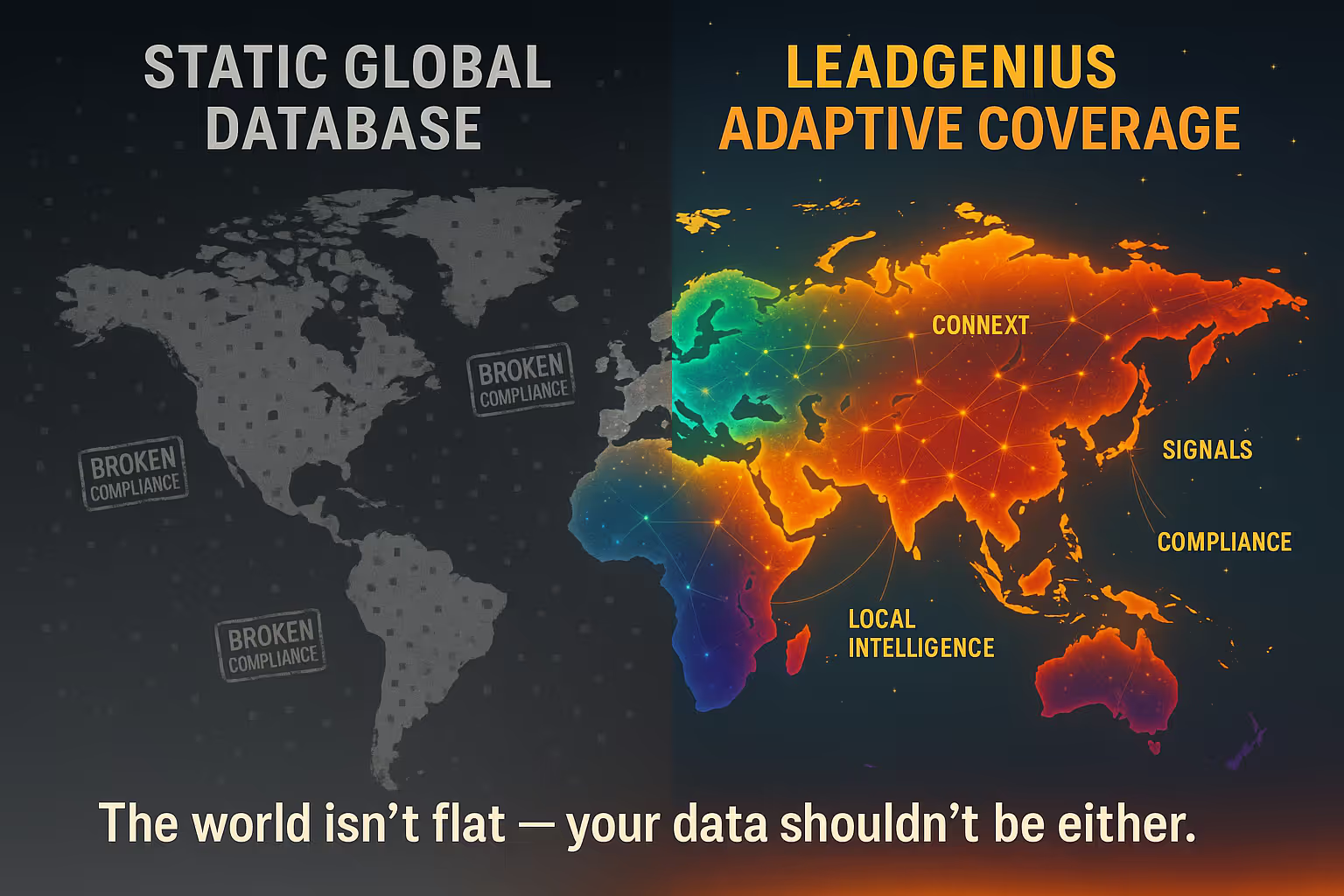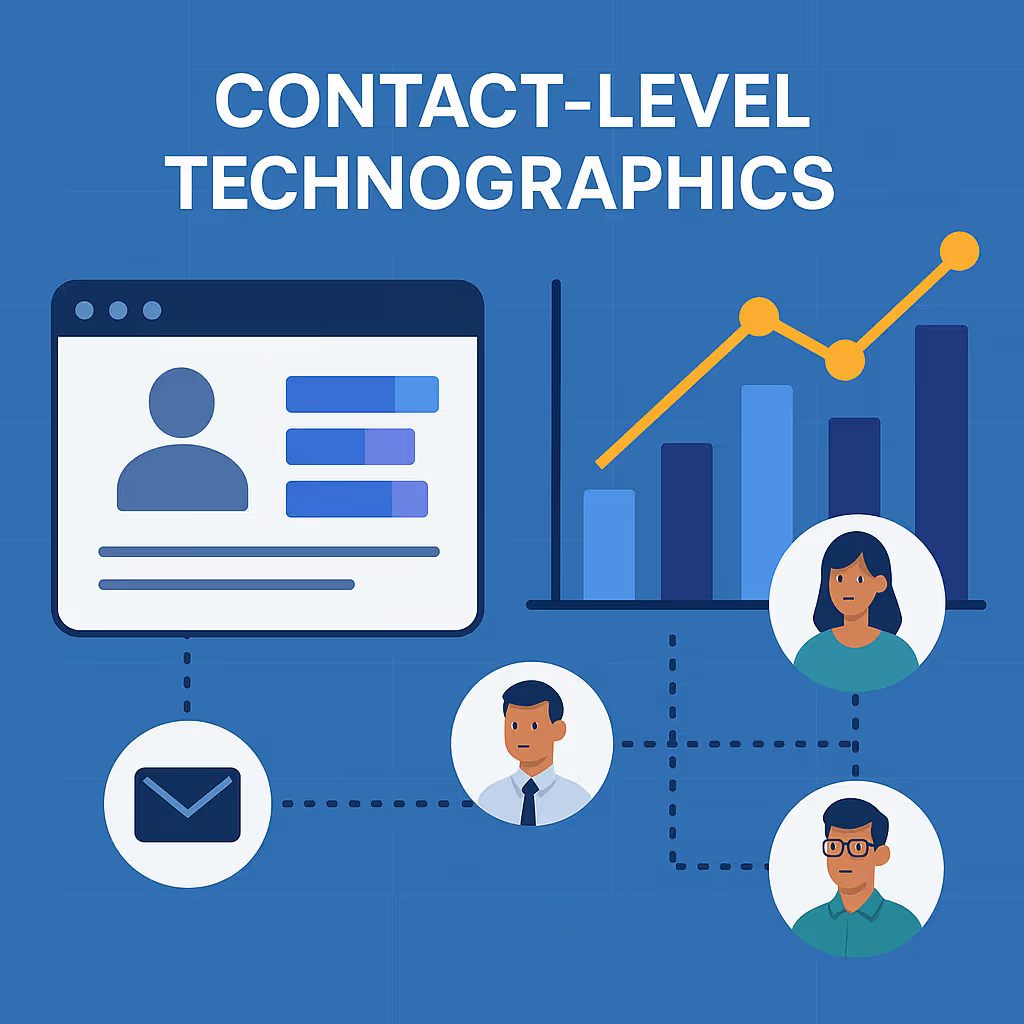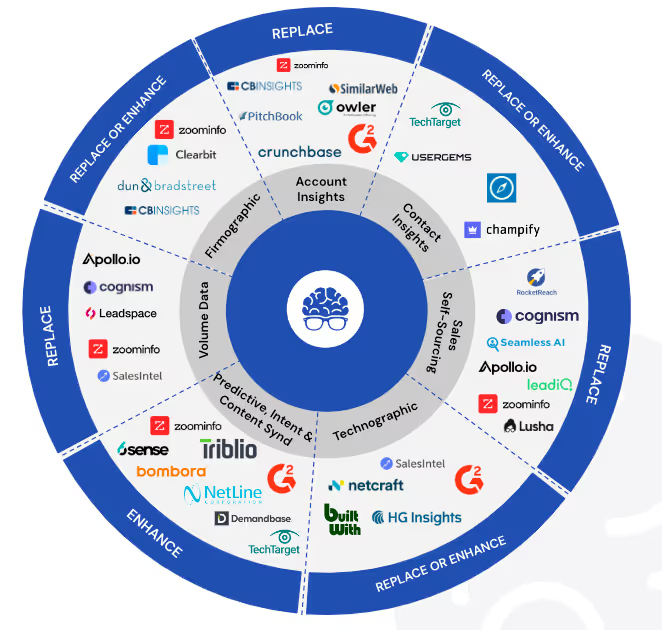For years, “global data coverage” has been the shiny promise of every B2B data provider — a single platform where you can click a button and unlock the world. The pitch sounds elegant: frictionless scale, unified access, total reach.
But anyone who’s actually tried to run a campaign in Japan, Germany, or Brazil knows the truth: global databases aren’t global. They’re just exported assumptions.
We’ve entered an era where local depth — not global breadth — defines success. In a world of fragmented regulations, languages, and digital behaviors, “universal” datasets collapse under their own uniformity. What wins now is bespoke, adaptive coverage: systems that learn each market the way a human would — with nuance, compliance, and context baked in.
The Fallacy of Global Databases
Legacy data platforms are built like empires — one central schema, one compliance framework, one ontology of what a “company” or “contact” looks like. That’s efficient for scale, but it’s disastrous for accuracy.
In North America, that model works fine. Corporate filings are accessible, privacy laws are looser, and digital presence is standardized. But step outside that bubble, and the scaffolding breaks.
- In Germany, GDPR enforcement is aggressive and regionalized.
- In Japan, job titles are relational and rarely standardized.
- In India, company hierarchies are fluid, and firmographic data is often buried in non-English filings.
Global databases flatten all that complexity — labeling nuance as noise. The result? You get “coverage,” but not truth.
The Bespoke Alternative: Adaptive Crawling and Contextual Precision
LeadGenius doesn’t try to maintain one static, monolithic database of the world. We build bespoke data pipelines that adapt to the digital, linguistic, and regulatory environment of each region.
That means instead of exporting an American dataset into EMEA, we rebuild the dataset using localized crawlers, region-specific compliance frameworks, and human verification teams who understand the culture of data.
When SAP wanted to expand its reach across EMEA, our team didn’t just hand them “a list.” We created a living, compliant data ecosystem. We crawled regional corporate registries, monitored hiring patterns across 27 countries, and layered in signals from trade associations, funding announcements, and job boards — each one localized, translated, and verified.
The result wasn’t just “more data.” It was smarter data — the kind that revealed buying intent long before competitors could see it.
That’s what custom global depth looks like: precision engineered for context, compliance, and competitive edge.
The AI Connection: Why LLMs Need Local Data
Large Language Models like GPT or Gemini are built on massive, multilingual datasets. But when they struggle, it’s almost always for the same reason: grounding. They don’t “know” what’s true in a local context.
Training a GTM copilot or a sales intelligence model is no different. You can’t build global intelligence on homogenized data. You need regionally accurate, signal-rich inputs — the same kind LeadGenius delivers.
Our adaptive pipelines don’t just feed CRM systems; they feed AI systems — grounding enterprise models with verified, contextual truth. In the future, every global sales engine will have its own data co-pilot. And those copilots will only be as smart as the signals they ingest.
That’s why LeadGenius doesn’t sell records — we provide regional reality.
The New Hierarchy of Global Data
Global databases were built for an old world — a world that prized uniformity over utility. But the new global GTM reality looks more like this:

When you adopt a bespoke model, every region becomes an opportunity to learn — not a risk to manage. That’s how SAP unlocked new markets. It’s how global leaders like Amazon, Microsoft, and Workday maintain precision at scale.
Global ≠ Generic
Here’s the paradox: the more global your business becomes, the more local your data has to be.
A one-size-fits-all database can’t see what’s unique about emerging markets, cultural nuances, or linguistic cues that drive conversion. But a bespoke, living data system — one that understands each market in its own language — can.
That’s the quiet revolution happening inside global GTM. The future isn’t one database to rule them all. It’s millions of micro-ecosystems, harmonized by AI and verified by humans.
Global ≠ Generic.
The future of intelligence is custom by design.




